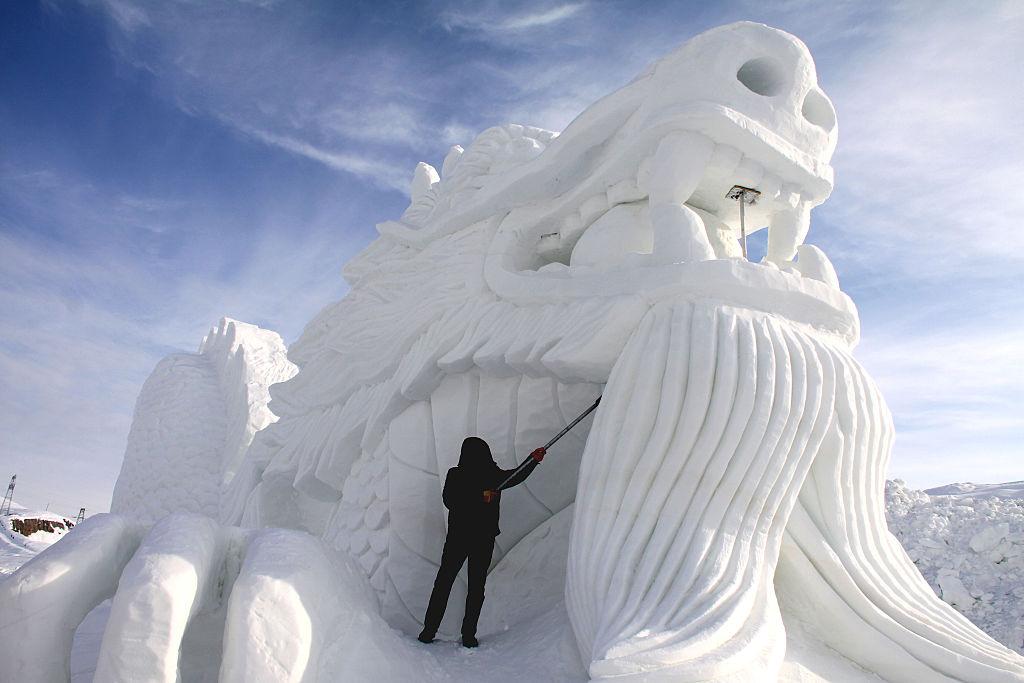
The ‘new normal’ of Australia’s relationship with China is that it will be marked by ‘enduring differences’. That’s the outlook offered by the secretary of the Department of Foreign Affairs and Trade, Frances Adamson.
It’s a candid description of what has been an icy couple of years between Canberra and Beijing, frosting diplomacy and chilling strategic perspectives. The fifth China–Oz icy age is changing the way the two nations regard each other.
The balance point between row and kow-tow is being reset.
Peering into the future, Adamson explained at Senate estimates in October what Australia and China face:
[I]t will be a relationship where we will need, on both sides, to work quite hard to manage what I really think will be enduring differences. Some points of difference may come and go and be able to be resolved, but other points of difference which go more deeply to the differences between our systems and our values are likely to endure. It should, therefore, not be surprising in my view that a relationship where there are points of difference, some of which are actively canvassed in the public domain—and whilst I don’t particularly like the term—is the ‘new normal’.
In the multipolar Indo-Pacific, Adamson said, Australia’s vision of an ‘open, inclusive, peaceful region’ will sometimes bump against China pursuing objectives ‘contrary to ours’.
Read on from that ‘new normal’ statement by our top diplomat for a mutual musing between Adamson and shadow foreign minister Penny Wong on how Australia’s polity sees the changing dynamic.
Last week, the polity got another ‘wake-up call’ when the counterespionage agency, ASIO, stated that it ‘takes seriously’ and is investigating a series of claims about the scale of Chinese espionage, including the explosive story that China offered $1 million to get a candidate elected to the Australian parliament.
A Manchurian candidate for the House of Representatives is, indeed, the new abnormal.
The twin questions confronting Australia are: Can we live with the authoritarian superpower? And, can we live without the nation that’s so essential to our economy?
Those questions frame a new Quarterly Essay by journalist Peter Hartcher—Red flag: waking up to China’s challenge. He writes that the challenge is whether Australia is tough enough to deal with China’s attempt to impose its power and influence:
The choice for Australia is not the one we’re always being told we have to make—between America and China. It’s the choice between the status quo, a wilful complacency, on the one hand. And, on the other, taking action to preserve our liberties from Chinese intrusion and American unreliability.
The essay had its Canberra launch in Parliament House last Tuesday, by former prime minister Kevin Rudd, who warned that Australia’s economy is too ‘China dependent’.
Echoing Hartcher, Rudd said for too long Australia had been ‘complacent in anticipating and responding to the profound geopolitical changes now washing over us with China’s rise, America’s ambivalence about its future regional and global role, and an Australia which may one day find itself on its own’.
Hartcher illustrates the China challenge with a series of ‘hits’ experienced by some of Australia’s most senior politicians.
In 2013, the hit to Treasurer Joe Hockey was China’s finance minister’s brazen demand to buy 15% of each of Australia’s top 200 companies (the maximum stake for a state-owned foreign investor).
In 2016, the hit to shadow defence minister Stephen Conroy was the threat that Labor would lose a $400,000 political donation if he didn’t soften his line on challenging China in the South China Sea.
In 2017, the hit to top leaders of the Labor Party was the threat from a member of China’s politburo to mobilise the 1.2 million ethnic Chinese living in Australia to vote against Labor, if it opposed legislation for an extradition treaty with China.
China’s power quest is causing pushback from Singapore to Sweden, but Hartcher writes that Australia has been a ‘canary in the mineshaft’ as it has moved to respond and recalibrate. China buys a third of everything Australia sells to the world and the realisation has hit that ‘getting rich with China means getting ready to be pressured by China’.
To confront the Manchurian candidate threat, Hartcher says all Australian MPs and senators should be required to submit to a formal ASIO security clearance. He says the new normal is forcing an end to Oz complacency:
Australia needs to concentrate on strengthening itself, making itself armour-plated against foreign subversion, so it can engage confidently with China and the world … Whenever Australia is asked to choose between China and America, the ultimate answer must be that we choose Australia.
Listen to the ASPI interview with Peter Hartcher below.